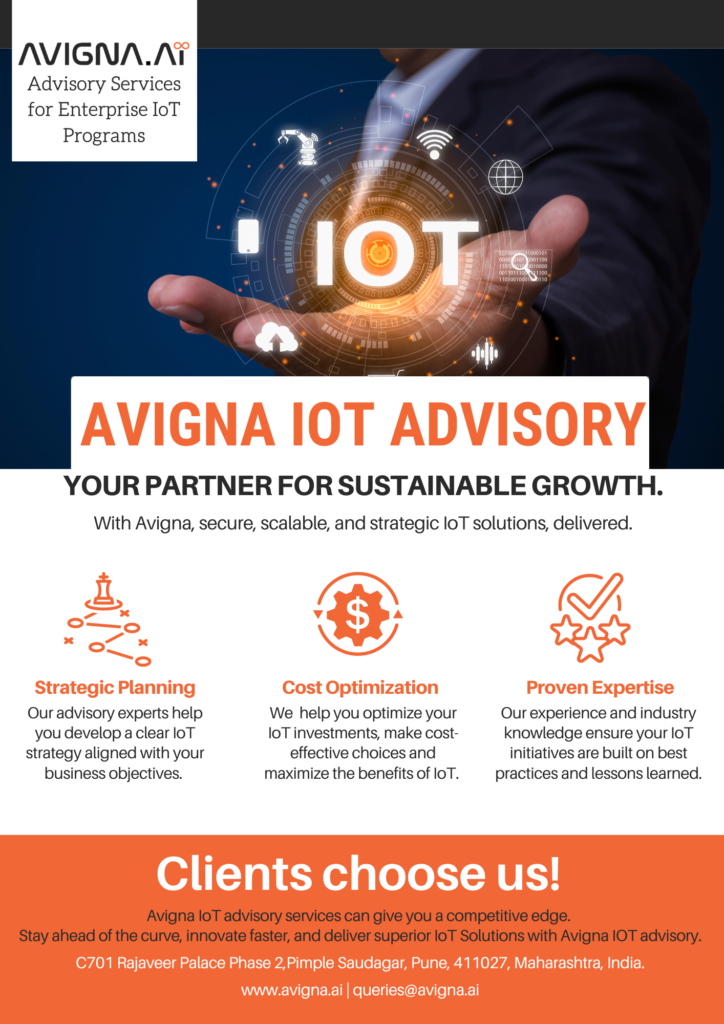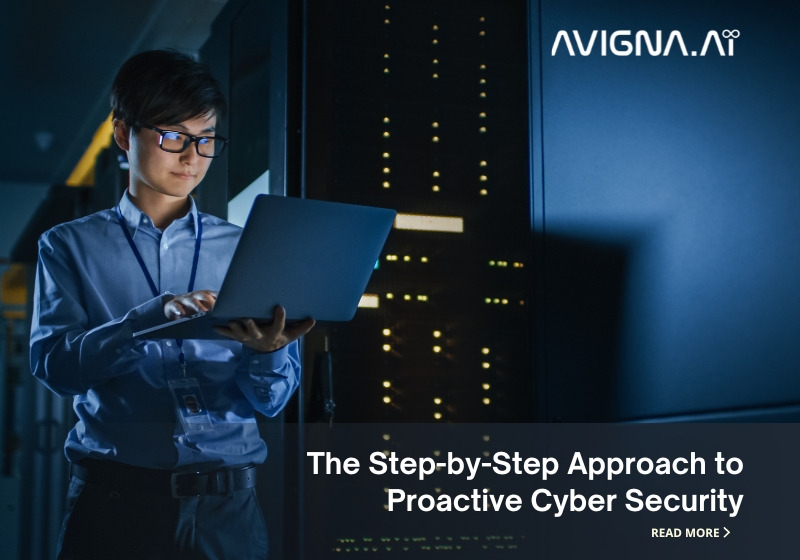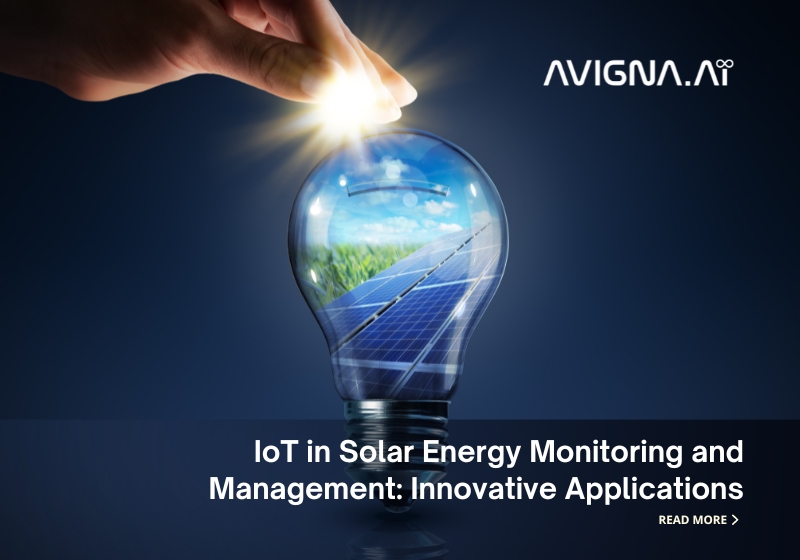The Internet of Things (IoT) revolutionizes industries by facilitating the connection of devices, systems, and applications. By gathering and analyzing data from these interconnected endpoints, organizations can acquire insights to enhance their operations, develop business approaches, and provide enhanced customer experiences. However, developing, implementing, and managing effective IoT services requires careful planning and expertise. This is where IoT advisory services come into the picture.
The Role of IoT Advisory Firms in Digital Transformation
IoT advisory firms are critical in helping enterprises succeed on digital transformation journeys. Some key contributions made by IoT advisors include:
- Developing digital strategies aligned to business goals: IoT advisors can take a holistic view to map out how IoT initiatives integrate into broader digital transformation roadmaps. They provide strategic guidance on digital opportunities, priorities, and sequencing of initiatives.
- Providing solutions for digital skills development: Many enterprises may need more technical skills to implement and manage IoT solutions. IoT advisors assess digital skill gaps within the organization and provide training recommendations to address them.
- Access to a global partner ecosystem: IoT advisors partner with SI’s, hardware vendors, cloud providers, and app developers worldwide. They leverage this partner network to build best-of-breed IoT solutions tailored to client needs.
An experienced IoT advisor provides enterprises with a strategic partner to drive digital success.
Balancing Value and Cost in IoT Advisory Engagements
IoT advisory firms provide consulting, strategy, technology selection, solution design and integration, data analytics, and ongoing management support to enterprises adopting IoT. But how do you select the ideal IoT advisor for your needs from the many options in the market? One of the key factors to evaluate is IoT pricing models vs service quality.
The pricing and billing structure of IoT advisory engagements can vary significantly between providers. Some common IoT advisory pricing models include:
- Time and Materials: You pay for the advisor’s time based on hourly or daily rates for different staff levels. Materials and other expenses are billed separately.
- Fixed Fee: The advisor charges a pre-decided fixed price for the entire project or set deliverables.
- Value-Based: The advisor charges a fee based on the value or ROI delivered by the IoT solution.
- Milestone-Based: Payments are made when the advisor completes agreed-upon milestones and deliverables.
- Retainer: You pay an upfront monthly fee to retain advisory services for a fixed number of hours or scope of work.
- Commission: The advisor earns a percentage commission on the ROI generated by the IoT project.
- Hybrid: A combination of two or more pricing models.
Your chosen model will depend on your priorities and preferences around cost, risk, flexibility, and aligning incentives. However, it’s crucial to take into account factors, not cost, while choosing an IoT advisor. The ultimate measure of success and return on investment for your project will depend on the quality of service you receive.
Key IoT Advisory Service Quality Factors to Evaluate
Below are some of the most important aspects of service quality to analyze when comparing IoT advisors:
Expertise and Experience
- Deep expertise in IoT technology, platforms, solutions, security, data analytics, and industry best practices.
- Experience delivering successful IoT projects in your industry.
- Knowledge of regulatory and compliance factors impacting your IoT use cases.
- Staff with relevant technical capabilities and business consulting skills.
Methodology
- Structured, proven methodology tailored to your needs.
- Clear definition of scope, deliverables, timelines, and expectations.
- The iterative approach allows flexibility to adapt to changing requirements.
Customer Orientation
- Take time to understand your business priorities and objectives.
- Committed to your success versus just pushing products or services.
- Cultural fit and ability to work collaboratively with your team.
Solution Design
- Ability to design tailored solutions aligned to your use cases.
- Expertise with key technology providers and partners in the IoT ecosystem.
- Architect flexible, scalable solutions for future growth and evolution.
Execution Capabilities
- End-to-end capabilities spanning strategy, design, integration, and deployment.
- Ability to deliver solutions on time and within budget.
- Experience managing complex, enterprise-grade IoT projects.
- Global or regional delivery presence to support rollout.
Innovation
- Bring new ideas and perspectives to help you get ahead.
- Apply emerging technologies like AI/ML, digital twins, and AR/VR in novel ways.
- Share insights into industry trends, competitive moves, and technologies.
Post-implementation Support
- Technical support and SLA commitments.
- Assistance with change management and training.
- Ongoing optimization, enhancement, and management services.
Evaluating these service quality factors will help you select an advisor who can execute your vision and deliver maximum value. It ensures you get the capabilities and commitment needed for a complex IoT project versus the cheapest option.
Smartly Balancing Pricing and Quality
Finding the right equilibrium between cost and capabilities in an IoT advisor involves several considerations:
- Set a budget aligned to the expected value: Have realistic ROI expectations and an advisory budget proportional to the upside. Investing in quality services will pay dividends.
- Understand how IoT pricing models incentivize performance: Some models, like fixed or milestone-based pricing, transfer delivery risk to the advisor, while time and materials pricing leaves risk with you.
- Define clear scoping requirements early on: Leave no room for misunderstandings around project scope, responsibilities, and timelines.
- Compare multiple bids: Get proposals from 3-4 advisors to benchmark pricing and capabilities.
- Focus on expertise first: Deep IoT experience and proven methodologies are must-haves – be wary of going too cheap.
- Ask for references: Speak to past clients to validate service quality and get unfiltered feedback.
- Negotiate flexible terms: Seek billing models, milestones, and exit clauses that allow adjusting scope if required.
- Include service standards in contracts: Formalize project delivery KPIs, quality thresholds, support SLAs, and penalty clauses.
These steps allow you to structure win-win engagements with experienced IoT advisory firms that balance cost considerations and quality imperatives.
Warning Signs of Low-Quality IoT Advisory Firms
Sometimes, extremely low-cost advisors may seem tempting, but this often reflects significant skill and capability gaps that can derail projects. Watch out for these warning signs of inadequate advisory services:
- Make sweeping promises without substantiating their experience.
- Lack of established methodologies and propose loose project plans.
- Need more expertise in your industry and specific IoT use case.
- Have small teams without specialized skills needed for the project.
- Hard sell products versus offering objective advice.
- Hide costs for IoT services that should be included.
- Be specific on support specifics and avoid formal SLAs.
- Rush to start work without proper discovery and planning.
By recognizing these red flags early, you can avoid getting stuck with incompetent or unethical IoT pricing models and opt for one that demonstrates transparent pricing, a stellar track record, and a commitment to delivering maximum value.
Key Takeaways on Balancing Cost and Quality for IoT Advisory Services
Selecting the right IoT advisory partner involves carefully analyzing pricing models, service capabilities, and overall cultural fit. Keep these best practices in mind:
- Set clear objectives and success metrics upfront to enable value-based selection.
- Require detailed project plans, scoping documents, and SLAs from all advisors you evaluate.
- Verify capabilities, methodologies, and expertise through case studies, client references, certifications, and team bios.
- Compare multiple proposals to find the optimal balance of cost and capabilities.
- Structure pricing models and contracts to incentivize performance while controlling risk.
- Focus on quality over cost alone, but confirm value-adds justify higher fees.
- Speak to past clients to validate service delivery track record.
- Inspect outsourced work product samples for consistency and quality.
- Start with a pilot to test capabilities before longer-term commitments.
Choosing the right IoT services partner delivers the expertise required to transform data into insights that drive business value. While cost is essential, it should not be prioritized at the expense of advisory quality, capabilities, and project execution rigor.
Emerging Technologies Expanding IoT Advisory Capabilities
Some leading-edge capabilities advisors are building through emerging technologies include:
- AI and machine learning: Applying AI/ML to IoT data unlocks new operational efficiencies, insights, and automation levels. IoT advisors maximize value using predictive analytics, anomaly detection, and optimization algorithms.
- Digital twins: IoT advisors use digital twin simulations of physical assets and processes to create dynamic virtual models that enable what-if analysis, predictive maintenance, and remote monitoring.
- AR/VR solutions: To improve training and field service operations, IoT advisors create augmented and virtual reality experiences leveraging IoT connectivity and digital twin capabilities.
- Blockchain integration: IoT advisors apply blockchain to enhance transparency, automation, and security across supply chains, transactions, and data sharing between IoT systems and users.
By complementing their core IoT expertise with capabilities in advanced technologies, advisors can deliver higher business value to their clients.

Having a balanced approach
Embarking on an IoT transformation requires making prudent decisions when selecting advisory services. While striking the ideal balance between pricing and service quality involves nuances, focusing on value over cost alone is key. Partnering with expert advisors with proven track records of successful implementations is well worth the investment. Their strategic guidance and technical capabilities can propel your business into the future and maximize the benefits of IoT innovation. With the right advisor relationship founded on clear scoping, transparency, and shared objectives, you gain a trusted ally to help capitalize on the enormous potential of the IoT revolution.
Avigna is a leading IoT Consulting and Advisory firm. Reach our IoT experts at queries@avigna.ai. Connect with us on LinkedIn.



